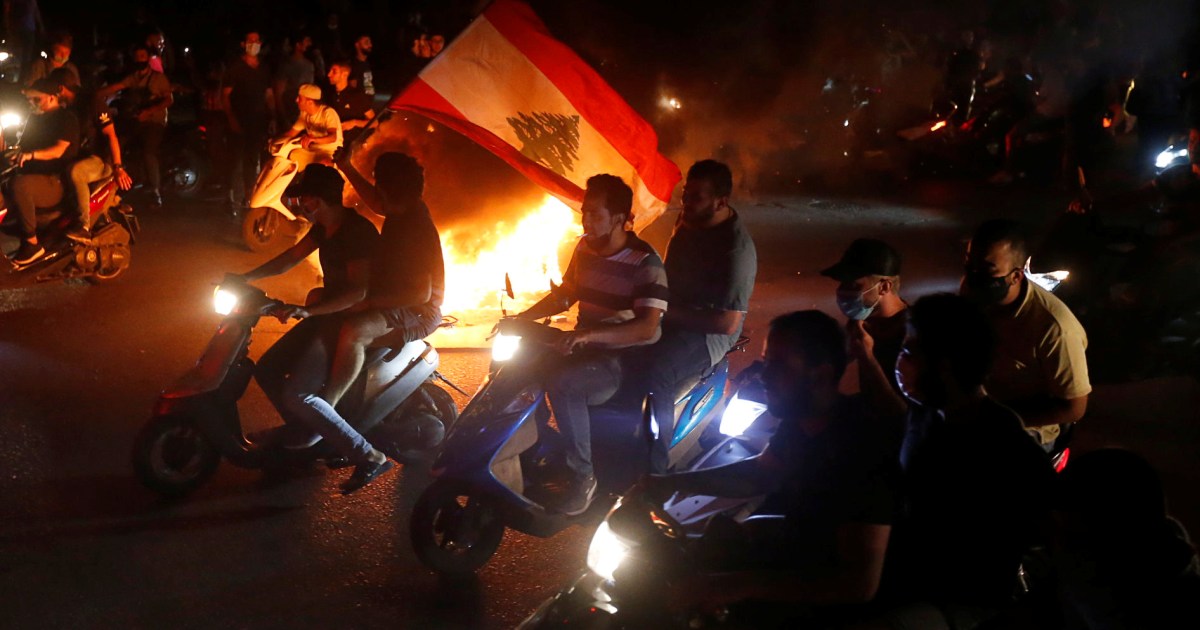Protests erupted across Lebanon denouncing the collapse of the national currency against the dollar and the deteriorating economic conditions. The protesters closed a number of the streets of the capital Beirut, the cities of Tripoli, Saida, Nabatieh, and other areas, and they also gathered in front of the central bank headquarters in the main cities.
The protesters denounced the financial and social policies of the government, and held it responsible for the economic deterioration in the country.
The demonstrators chanted slogans against the political elite and set fire to the main roads across the country, in the widest protests of its kind since imposing quarantine measures in mid-March, due to the outbreak of the Coruna virus.
They also chanted "Harami Harami, Riad Salama Harami," referring to the governor of the Lebanese Central Bank, and "the people want to overthrow the regime."
The slogans of the university were unified, in contrast to the sectarian confrontations that took place about a week ago.
Dozens of young men on motorbikes from the "Trench Drenching" area joined the protesters on the Ring Bridge in Beirut, and "slogans and demanding and living slogans" were unified, according to the official national news agency.
In Tripoli - the largest city in Lebanon after Beirut - Reuters reported that protesters threw Molotov cocktails at a building belonging to the central bank, which led to a fire and prompted the police forces to fire tear gas to disperse the demonstrators.
The lira subsides
And the value of the national currency fell on Thursday until the price of the dollar against it reached five thousand pounds in the informal market. It has lost 70% of its value since last October, when Lebanon plunged into an economic crisis that is seen as the greatest threat to the country's stability since the civil war that raged between 1975 and 1990.
The Governor of the Central Bank said Thursday evening in a statement that "information on the exchange rate of the dollar against the Lebanese pound is circulated through social media at prices far from reality, which misleads citizens, and it is completely untrue."
In an effort to control the informal exchange market, the Bank of Lebanon plans to start operating an electronic platform for exchange operations on June 23.
The deterioration of the exchange rate of the lira comes at a time when the Lebanese authorities hold successive meetings with the International Monetary Fund in the hope of obtaining financial support that puts an end to the crisis.
For its part, the Presidency of the Lebanese government issued a statement saying that Prime Minister Hassan Diab decided to hold an emergency session of the Council on Friday to discuss monetary conditions.
Lebanon is witnessing the worst economic collapse in decades, with the scarcity of the dollar and banks stopping to provide customers with their money in the American currency. The crisis has caused an increase in the rate of inflation and placed nearly half of the population below the poverty line.

